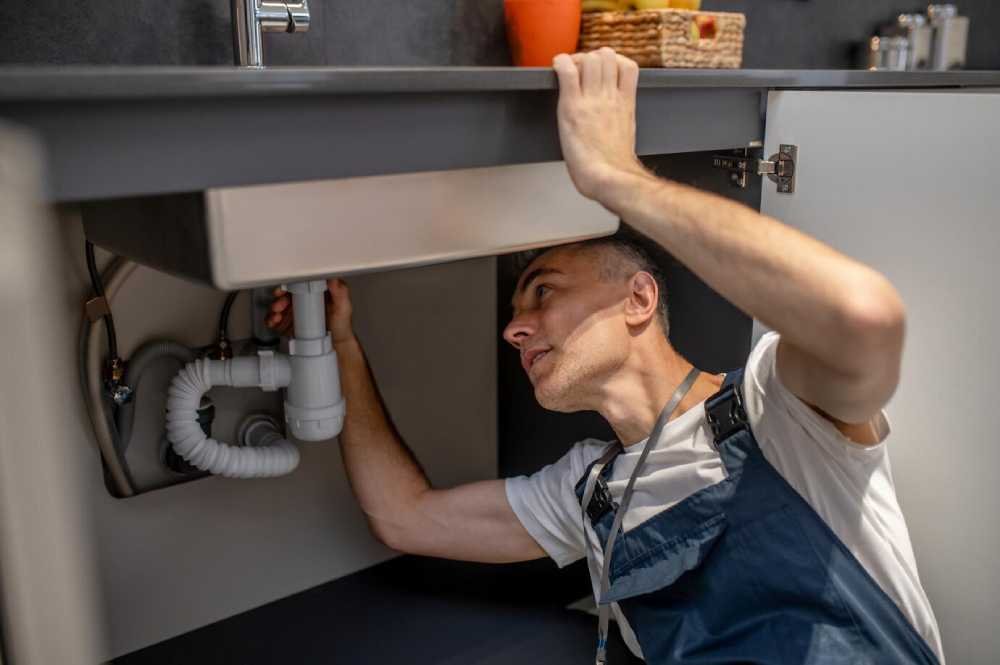Modern plumbing is crucial for efficient water systems, with advancements in techniques and tools enabling accurate diagnosis and repairs. Best practices include routine maintenance, proper installation, and adherence to local codes, ensuring long-lasting, reliable systems.
Plumbing is vital in the intricate tapestry of home and commercial infrastructure, ensuring systems run smoothly and efficiently. For many, the search for expert plumbers in Seguin, Texas, becomes crucial to easily managing intricate plumbing challenges. Modern plumbing leverages innovative techniques and sophisticated tools, cementing its role in convenience and sustainability. These advancements, alongside the importance of regular maintenance, can enhance the lifespan of plumbing systems, prevent extensive damage, and support environmental conservation efforts.
Though often underappreciated, plumbing is the backbone of any building’s infrastructure. The advantages of staying informed about new techniques and best practices extend beyond mere convenience. A well-maintained plumbing system fosters a safe and healthy living environment. As more people recognize this, there is an increasing appreciation for professional plumbing services that offer reliability and expert solutions to common and complex plumbing issues.
Contents
The Role of Professional Plumbing Services
When plumbing issues arise, the expertise of a seasoned plumber becomes invaluable. Whether tackling something as seemingly benign as a dripping faucet or addressing the complexities of a concealed leaking pipe, professional plumbers bring insights honed through years of hands-on experience.
They provide immediate solutions and preventive advice that saves homeowners and businesses from future headaches. Professional plumbers operate with the understanding that every minor issue, if neglected, could escalate into a significant problem, leading to costly repairs.
Moreover, qualified plumbers can diagnose underlying issues that may not be visible to the untrained eye. From conducting pressure tests to identifying weaknesses in pipe systems, they employ specialized knowledge to mitigate potential problems. Customers often report saving significant amounts of money by preemptively addressing these issues. The peace of mind from hiring professionals is invaluable, ensuring that the plumbing systems function optimally over the long term.
Modern Plumbing Techniques
PEX piping is a popular choice in modern plumbing due to its flexibility, resistance to scale and chlorine, and faster installation, making it ideal for residential water systems. Trenchless technology, which is gaining popularity worldwide, allows for the repair and installation of underground pipes without disrupting surface landscaping.
This method is efficient, cost-effective, and environmentally friendly, reducing damage caused by traditional excavation methods. These innovations contribute to water conservation efforts, reducing water waste and promoting sustainability.
Essential Tools for Plumbers
A plumber’s toolkit is as varied as the challenges they face. From essential tools like pipe cutters, plungers, and wrenches to advanced diagnostic equipment like video inspection tools, contemporary plumbing tools empower professionals to identify and address issues with remarkable precision. Video inspection tools enable plumbers to determine the cause and location of blockages, reducing the need for extensive exploratory work that could damage property.
Moreover, using high-tech tools such as water pressure gauges and electronic leak detection devices allows plumbers to conduct thorough assessments effectively. These tools streamline the process and increase accuracy, immediately applying the right solutions. Plumbers equipped with the latest tools can deliver services that effectively address current challenges while preventing future complications.
Preventative Maintenance Practices
Preventative maintenance sits at the heart of proactive plumbing care and is crucial for avoiding major plumbing disasters. Implementing routine checks, such as inspecting pipes for signs of wear, testing water heater pressure relief valves, and monitoring water pressure, can help identify potential issues before they escalate. Simple practices, like regularly cleaning drains and checking for leaks, go a long way in maintaining the integrity of plumbing systems.
For homeowners keen on water conservation, preventative maintenance offers a double benefit. By ensuring systems are performing efficiently, the risk of water damage is minimized, and water usage is optimized, promoting environmental and financial savings. Encouraging a culture of regular maintenance can significantly contribute to household efficiency and sustainability in the long run.
Plumbing and Environmental Sustainability
The plumbing industry is embracing eco-friendly practices to conserve water resources. Installing water-saving fixtures like low-flow toilets and efficient showerheads can reduce water consumption without compromising performance, reflecting the global shift towards sustainable practices. Additionally, using sustainable materials and methods in plumbing helps reduce the environmental footprint of new constructions and renovations.
By adopting these practices, individuals and industries contribute to global efforts in water conservation, ensuring that plumbing is not just a conduit for water but a tool for stewardship and sustainability.
Common Plumbing Issues and Solutions
Leaks and clogs are among the most common plumbing issues homeowners face. Often caused by simple factors such as aging infrastructure or improper use, these problems can be resolved quickly with immediate attention. Quick fixes include tightening connections or using drain cleaners, but more severe plumbing problems like pipe bursts warrant the expertise of professionals to prevent extensive damage.
Acknowledging the importance of professional help, despite the potential for DIY repairs, is crucial for maintaining a functioning plumbing system. Knowing when to seek professional help ensures comprehensive solutions, safeguarding the property’s value and ensuring the safety of its occupants.
Future Trends in Plumbing
The future of plumbing continues to evolve as technology introduces further advancements. Smart plumbing systems, integrated with home automation technologies, provide real-time data on water usage, alert users to potential problems such as leaks or unusual water flow, and even control water consumption remotely. These technologies promise a more convenient, efficient, and sustainable approach to plumbing, aligning with broader smart home trends.
Continual innovations aim to make plumbing more efficient and responsive, reducing the industry’s environmental impact while enhancing user comfort. As the plumbing field adapts, staying abreast of these emerging trends will allow homeowners and professionals to capitalize on opportunities that improve system reliability and sustainability.
Wrap-Up
Incorporating professional services, embracing modern technology, and engaging in preventative maintenance are key strategies to ensure optimal plumbing systems. As plumbing continues evolving with technological advancements, staying informed about new techniques, tools, and practices will provide immediate and long-term benefits, enhancing efficiency and sustainability for all users.
Ultimately, these advancements improve the quality of services and contribute significantly to environmental stewardship and resource conservation.



